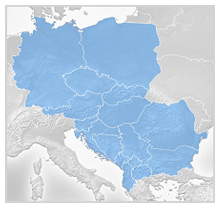Declarations
18th ZEVA Symposium
Kraków, Poland, 1 October 2011
hosted by the Polish Chamber of Physicians and Dentists
Statement on the
present and future status
of the professional self-governance of
physicians
Having regard to
Taking into consideration
The representatives of the Central and East European chambers of physicians gathered in Cracow have adopted the following statement:
In 2000, representatives of the chambers of physicians meeting in Český Krumlov adopted a Memorandum which set out the tasks and responsibilities of the chambers of physicians as the organizations of professional self-governance. ln particular, the representatives of the medical profession underlined that the chambers of physicians have responsibilities not only towards their members, but also towards the public. The role of the chambers is not limited to representing physicians' interests, but goes far beyond this. The chambers are, and should be, responsible for regulating and supervising the exercise of the medical profession in order to ensure high quality medical care.
Recently there have been attempts within Europe to Iimit the independence of chambers of physicians or to transfer professional regulatory functions to state administration agencies, and in some countries this has actually happened. lt has often been argued that chambers represent an obstacle to a free market and a constraint to competition.
As it is commonly accepted that healthcare services should be regulated in a specific manner, it has to be stressed that professional self-govemance is by no means a barrier or Iimitation to the development of economic activities. On the contrary, organizations of professional self-govemance are a guarantee that those who exercise the respective profession comply with its ethical principles and professional standards.
Organizations of professional self-govemance, operating within the framewerk of national and European legal regulations, have proven to be more efficient and competent than the authorities of the state in performing all regulatory functions. At the same time, organizations of professional self-govemance represent and defend the justified interests of their members, thus being the optimal way of regulating the exercise of liberal professions.
Having in mind the significance of the above considerations for the future of medical professions and for the quality of healthcare services, the Signatories of this document urge healthcare professionals, legislators and administrators to work together and to support, promote and expand the role of professional self-governance in the provision of high quality, accessible healthcare to patients in Europe. The Signatories also agree to mutual support in the case of attempts to Iimit the independence of chambers of physicians or to transfer regulatory functions to state administration agencies.
